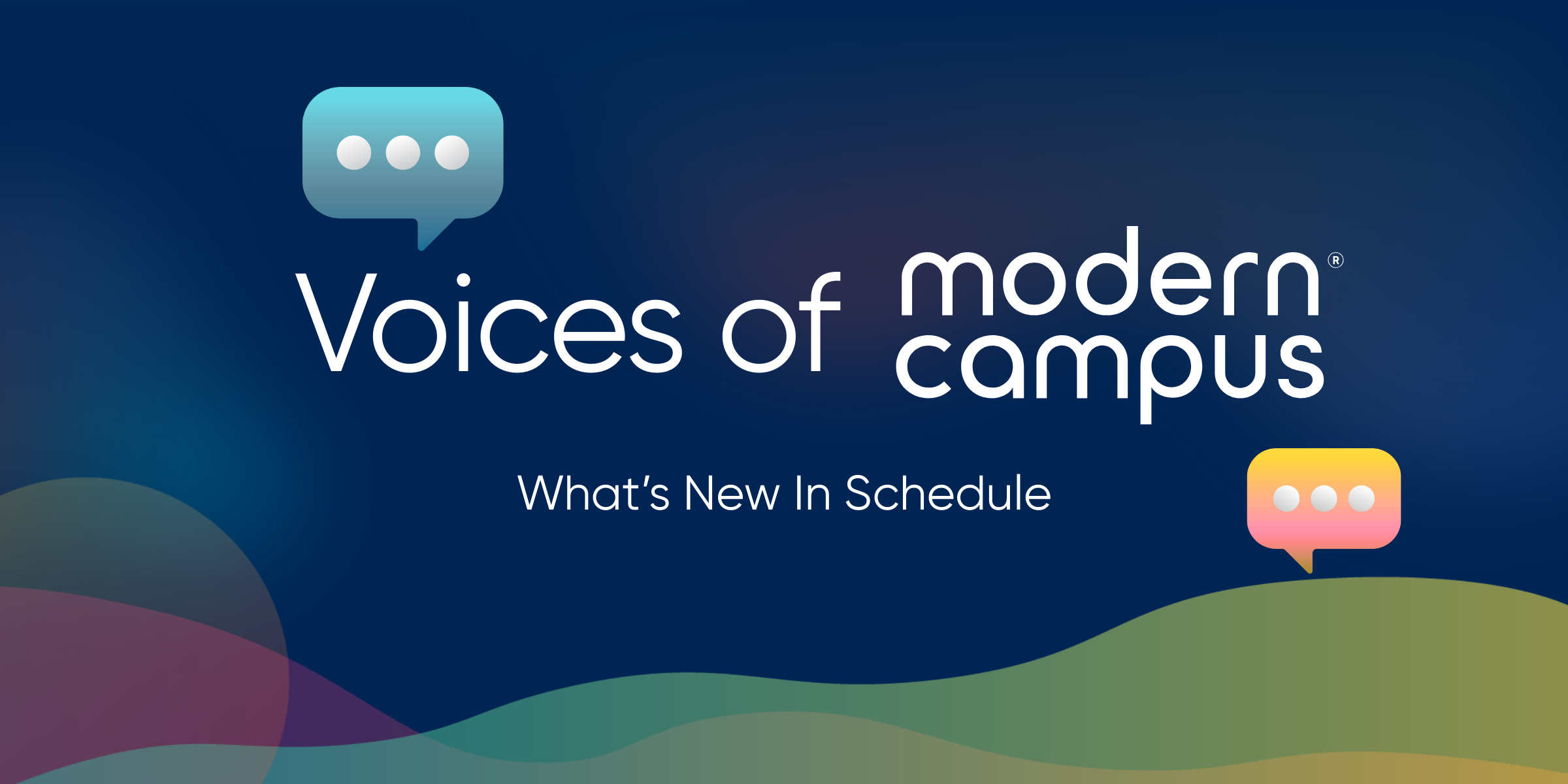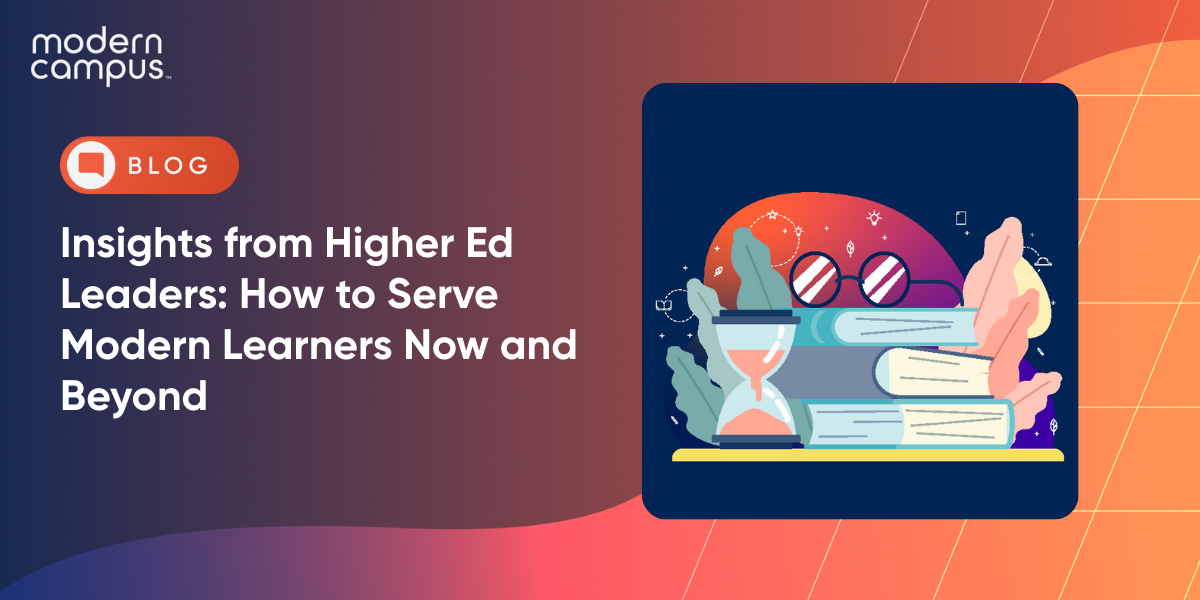Innovating on Tradition: Scaling Online Learning at a Historic University
What should brand-recognized institutions do to ensure their sustainable futures?
Dr. Joe Sallustio’s answer to that question is what inspires his drive to expand online learning into new territories. As the inaugural Senior Vice President for Lindenwood Global at Lindenwood University, he’s well aware of the perception of higher ed institutions with long, storied histories. Lindenwood University, which was founded in 1827, is steeped in tradition and, yet, its leaders are investing in online degree and certificate programs—the epitome of non-traditional learning.
That contrast—between old and new, well-tested and being tested—doesn't worry Dr. Sallustio though; it excites him.
Embracing Tradition and Innovation
“I think when we hear the word ‘tradition’ in higher ed, sometimes we look at that negatively. When it comes to barriers to disruption or barriers to innovation, tradition absolutely can be a barrier,” he says during the 25th episode of Illumination by Modern Campus. “But tradition as a fundamental value proposition for innovation is what really attracted me to Lindenwood.”
He believes that Lindenwood University—and other historic institutions—must embrace both tradition and innovation. It’s all about adapting.
“So much around higher ed right now is about circumstance and who's willing to take the circumstances that we’re presented with,” Dr. Sallustio says. “You’ve got to make something out of those cards you’re dealt or you’ll fold.”
Enter Lindenwood Global. It’s the future-proof castle of cards Lindenwood University is building—both in response to current challenges and in preparation for future student demands.
“It's going to truly be exactly what it sounds like,” says Dr. Sallustio. “It's an online initiative with a global context serving the adult student market and maybe the traditional student market.”
By “traditional student”, Dr. Sallustio clarifies that he’s referring to 18-to-22 year olds. In 2022 and beyond, he foresees more and more students of this age group exploring non-traditional higher ed options. The flexibility offered by online baccalaureate degree programs is undeniable and, thus, so is the need for Lindenwood to offer such options.
Lindenwood’s reputation as a traditional university, Dr. Sallustio feels, is what will set its online division apart.
“That connection, that history is going to be so important,” he says. “You can get an online degree pretty much anywhere … and many online institutions are newer. They don't have that 194-year-old history.”
Yet, Lindenwood Global will be built upon fresh perspectives. Dr. Sallustio himself has not been at the university anywhere close to 194 years; he joined in December, 2021—a newness he wholeheartedly embraces.
“I'm walking to this pure blank white canvas,” he says. “I'm gonna probably splatter-paint that sucker for a little while until I figure out how to brush it the right way.”
Learning from Other Industries
Another advantage is Dr. Sallustio’s experience leading enrollment management and marketing divisions.
“You’re talking about marketing infrastructure that needs to exist,” he says about making Lindenwood Global a success. “Because there's a difference between organic and traditional marketing … and search engine optimization. A big difference. You're talking about shelf space; where does Lindenwood global sit in the options for enrollment? All of that is gonna be about competing priorities—finding the balance within those priorities. “
Still, despite all his enthusiasm and optimism, Dr. Sallustio knows that future-proofing initiatives will only be as good as the future instead. And that future cannot be predicted.
“There's no crystal ball that exists,” he says. “We all want to have all the answers, but no one has any answers.”
So instead of charging ahead with just one solution, institutions need to try out a range of ideas. Or as Dr. Sallustio puts it: “We’re A/B split-testing.”
Many of those tests, he says, will sample from other industries.
“There is a future for higher ed outside of what higher ed looks like today,” he says. “Could it look more like a technology company? Could it look more like a hotel chain company?”
According to Dr. Sallustio, learner expectations for their postsecondary experience will be based on innovations coming from the eCommerce space.
“How somebody experiences higher education can be guided by other industries that are more innovative and faster.”
Getting By with a Little Help from Your Networks
In order to learn from other industries, Dr. Sallustio says, campus professionals have to expand their professional networks beyond the higher ed bubble. They cannot afford to be passive or merely willing to learn should opportunities happen to arrive at their doorstep; they have to proactively create those opportunities and conversations for themselves.
“I believe very greatly, massively and highly in LinkedIn connections,” he says. “If you take advantage of it, it opens up everyone to new ideas.”
Case in point: within just two years, Dr. Sallustio estimates that he’s gone from having fewer than 2,000 LinkedIn connections to more than 10,000.
“I created a thought leadership network for myself,” he says, adding that he already has plans to leverage those connections in building out Lindenwood Global. “I'm gonna pull on every single one of those resources.”
After you listen to the latest episode of Illumination by Modern Campus, check out TheEdUp Experience, a higher ed podcast that Dr. Sallustio co-founded and co-hosts.
Listen to This Episode
Listen on Apple Podcasts Listen on SpotifyRSS Feed
Last updated: January 14, 2022


